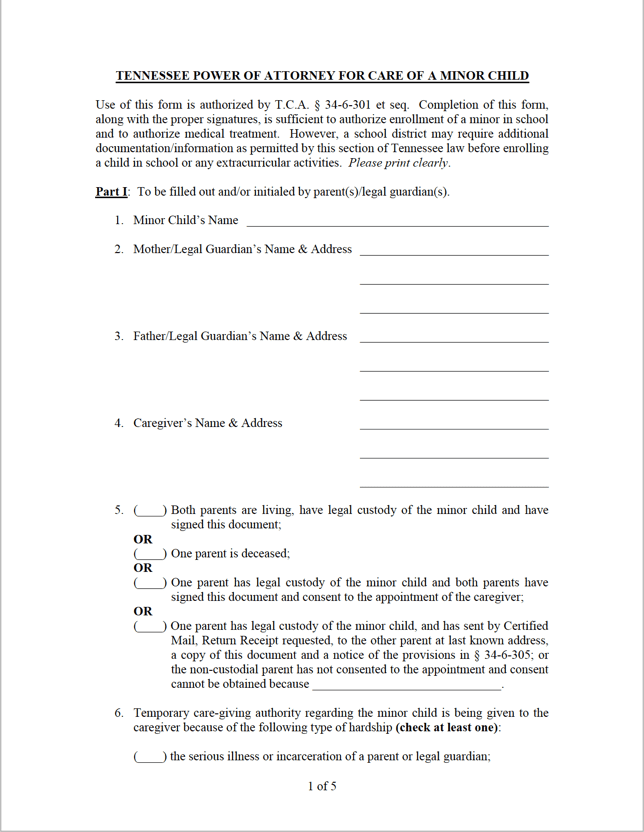Tennessee Minor Child Power of Attorney Form
A Tennessee minor child power of attorney form permits parents to grant temporary caregiving authority to a designated caregiver, authorizing them to care for their child when the parents cannot do so. The Power of Attorney for Care of a Minor Child Act governs the legally-binding relationship rather than the Durable Power of Attorney Act. The provisions within this act allow for the enactment of a minor child power of attorney form in cases of hardship preventing the parent from caring for the child.
Examples of hardships include severe illness or incarceration of a parent, physical or mental conditions preventing care and supervision of the child, and loss or unlivable of the child’s home due to a natural disaster. To comply with state law, parents must specify the details of the hardship in the power of attorney form.
State Laws: § 34-6-302
Signing Requirements (§ 34-6-302): The parent must sign and acknowledge the power of attorney for the care of a minor child to meet legal requirements.
